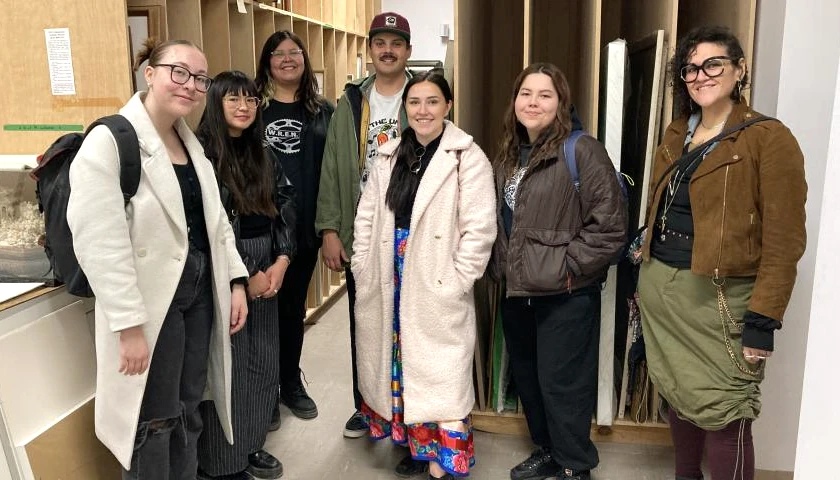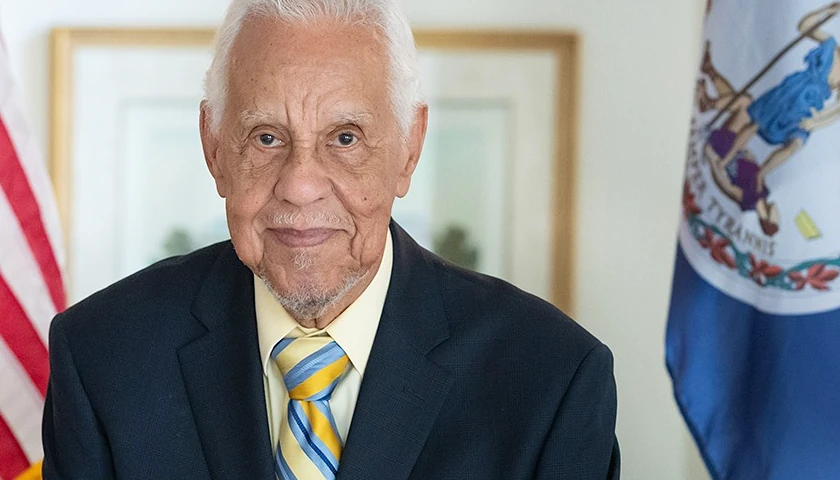by Dave Huber
What does an institution of higher learning do when it has a “problematic” collection of paintings and sculptures?
Answer: It “decolonizes” them. In other words, it replaces “white settler” works with those by Indigenous/Native/First Americans.
The University of Manitoba currently is engaged in such a decolonization effort, as much of its art collection “depicts Indigenous folks in not really an accurate way” and “glorifies […] white settlers,” according to a CBC report.
For example, a painting by Lionel Stephenson depicts a (white settler) fort on one side of a river, while on the other sits a Native American in front of his teepee.
According to UM junior Jory Thomas – a vocal member of the school’s Indigenous Student Led Indigenous Art Purchase Program – the painting “kind of” shows a “‘We’re over here and they’re over there’ type situation” … there’s no sense of “community and togetherness.”
UM Art Collection Preparator C.W. Brooks-Ip added that the piece depicts “the threat of direct colonization.”
Thomas (pictured above, left end) also has an issue with a sculpture by Thomas Holland which depicts a Native on a horse spearing a buffalo. Although the work is “historically accurate,” it “wasn’t created from an Indigenous perspective of cultural understanding, respect and gratitude for the animal’s sacrifice,” she said.
Thomas claimed the sculpture’s “violent” imagery “perpetuate[s] harmful stereotypes” of Native Americans, and this can lead to a “hostile environment” on campus.
Both Stephenson’s and Holland’s works have been removed from UM.
A $30,000 grant from UM’s Office of the Vice-President (Indigenous) will enable those involved with the Indigenous Student Led Indigenous Art Purchase Program (like Thomas) to visit various artists and studios from which students can recommend new (Indigenous) works for the university’s art collection.
One such work is Frederick Lyle Spence’s “soapstone carving of a black silhouette of a goose” which features a “dream catcher” on its body. Spence said he was “humbled” and “honored” by UM’s request to purchase it given, he noted, his unpleasant student experience at the University of Winnipeg.
And what about all the so-called white settler pieces?
From the CBC story:
For years, art institutions have deliberated on what to do with works that reflect a colonial history — should they be relegated to vaults or reframed with an Indigenous perspective and context as an educational opportunity?
There’s room for both approaches, said Riva Symko, head of collections and exhibitions at Winnipeg Art Gallery-Qaumajuq, home to the world’s largest public collection of contemporary Inuit art.
“We do need to put things away to make space for other voices to be heard and seen. Sometimes we need to put things away because they’re traumatic, because they are harmful … especially to our Indigenous visitors and audiences,” she said. “And we don’t want to instil more trauma on our communities.”
However, she said, artworks can occasionally be reframed or retold from a different point of view, giving a new understanding of them.
Symko added that society is now “going through a paradigm shift” and eventually will decide whether colonial-era works should be “burnt down,” “stored away,” or brought back out “for discussion.”
– – –
Dave Huber is an Associate Editor for The College Fix. Dave has been writing about education, politics, and entertainment for over 20 years, including a stint at the popular media bias site Newsbusters. He is a retired educator with over 25 years of service and is a member of the National Association of Scholars. Dave holds undergraduate and graduate degrees from the University of Delaware.
Photo “Indigenous Student Led Indigenous Art Purchase Program” by University of Manitoba ISLIAPP.




